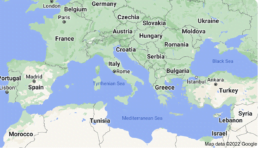Italy

Age verification for pornography is not on the current government agenda in Italy. However, a range of other age verification issues are in discussion, which may ultimately help support demand for age verification for pornography. Italy
Within the Italian government, the issue of age verification has been a widely discussed topic due to events in January 2021. These involved a 10-year-old who committed suicide as a result of a video seen on a social media platform. As an immediate consequence of this tragedy, the Italian Data Protection Authority ordered TikTok to stop processing the personal data of users whose age couldn’t be exactly verified by the company.
Since then, there have been discussions in government on proposals as how to react to the issue. No practical and binding decisions have been made. The President of the Italian Data Protection Authority agrees that there is the need to have a better legislative framework regarding age verification. He wants to do this while avoiding overwhelming the platforms with a “global identity registry”. The Ministry of Justice chaired a roundtable discussion within government in June 2021.
Currently, Italy has three proposals. One is uses artificial intelligence profiling to identify the ages of children. The other two make use of the national System for Public Digital Identity. Currently, people can use the System for Public Digital Identity to access online services provided by the public administration. This could be extended to allow parents to authorise their children to have access to social media networks. Alternatively it could have parents provide a temporary password or token, to achieve the same result.
As of September 2021, due to the formation of the new Italian government, it’s not clear if any of these 3 solutions will ever become reality.
New research from Telefono Azzurro
Within the framework of its Digital Citizenship Programme, the Italian non-profit organisation, Telefono Azzurro will shortly present the results of new research carried out in cooperation with Doxa Kids on children’s rights in the digital environment. Children and adolescents have been consulted on various issues such as their online habits and the risks of the digital environment.
There were questions on the impact of COVID-19 on their rights. Age verification was raised to find if young Italians are for or against it. The need for safe digital spaces and the principle of non-discrimination were also covered. Young people were asked how much time they spend online. A key element was the importance of making hotlines or helplines accessible via chat or text functions. The research shows that children share photos and videos online without being asked to give their consent. Children consider their right to privacy as one of the most important rights online. At the same time it is the right which is most frequently infringed in Italy.
Position of the Pope
The Vatican is a country wholly located within Rome. Back in 2017, Pope Francis, the current leader of the world’s largest religion, denounced the proliferation of adult and child pornography on the internet. The Pope demanded better protections for children online. He made a historic declaration at the conclusion of the World Congress: Child Dignity in the Digital World called The Declaration of Rome.

